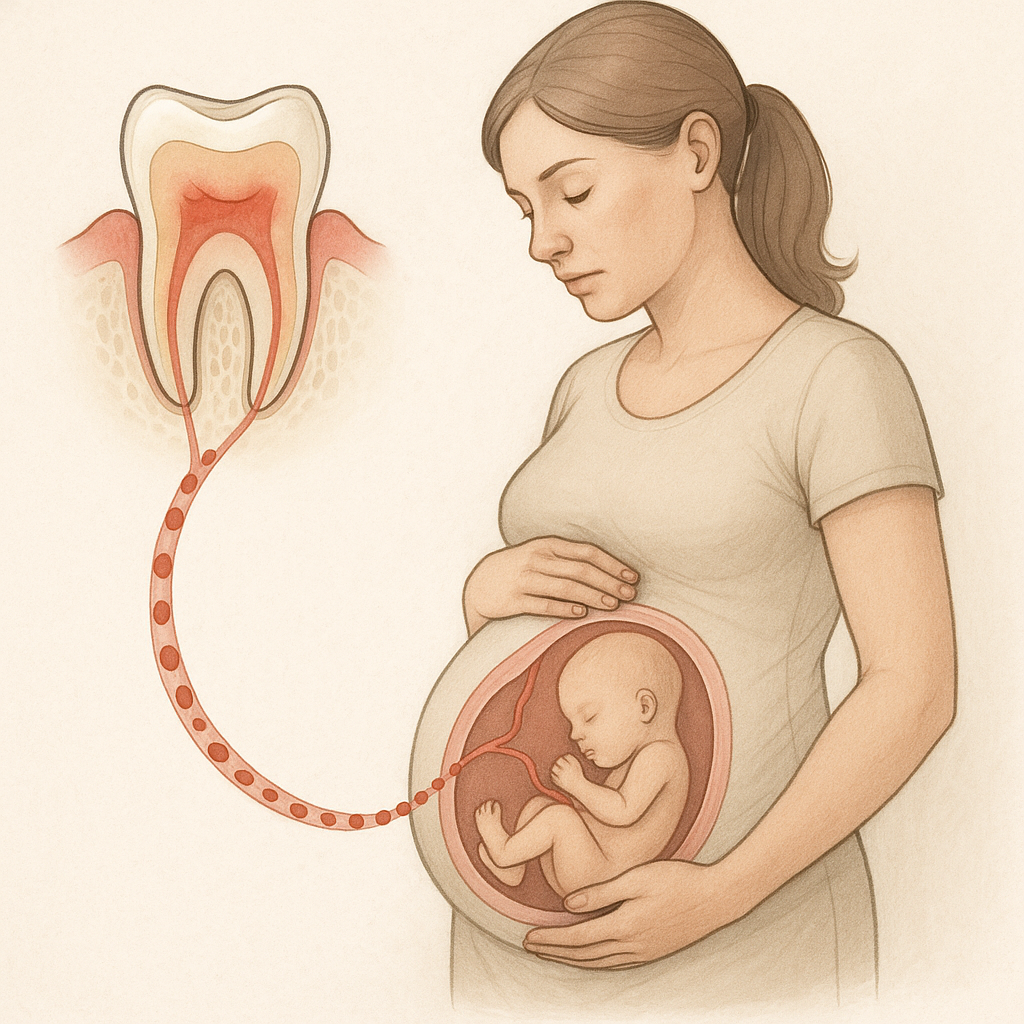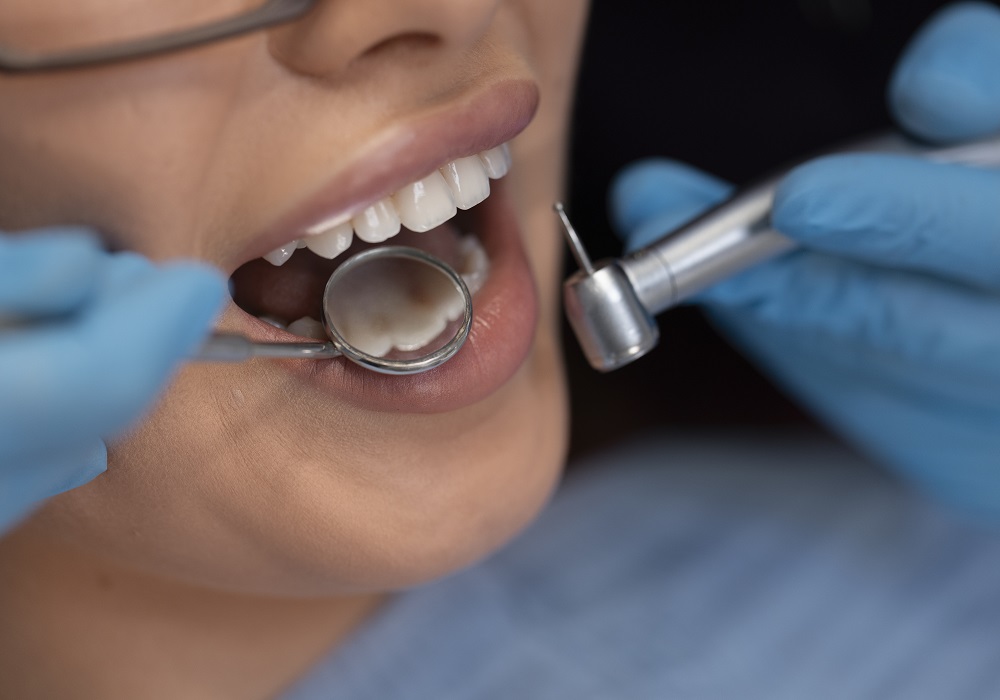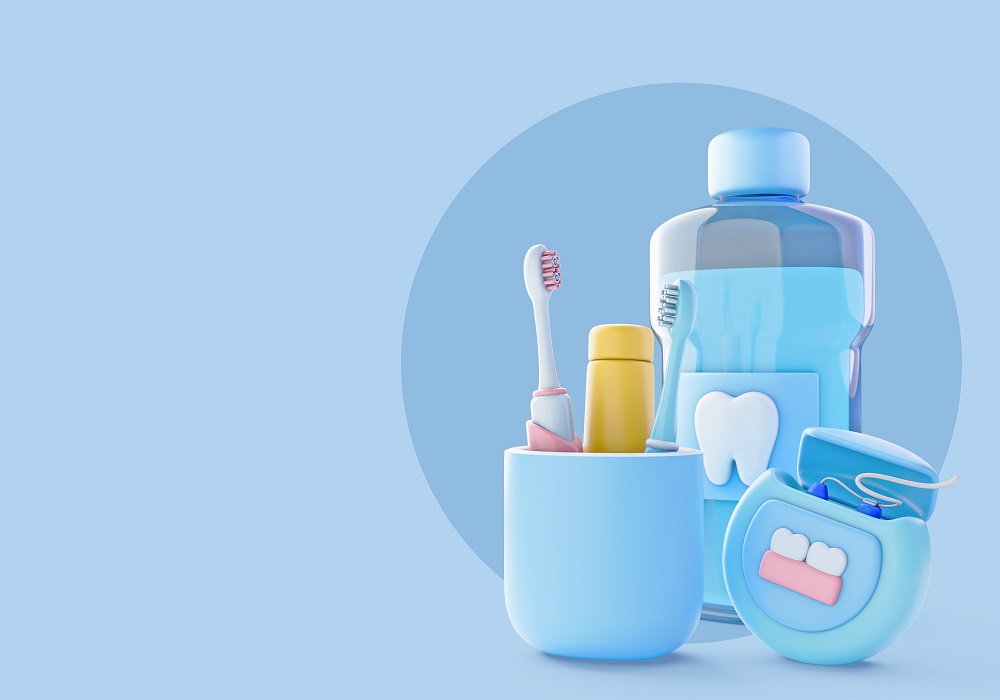Oral Health Tied to Pre-Eclampsia Risk in Pregnancy
When Maya found herself in the hospital for unexpected pregnancy complications, the last thing on her mind was her teeth. But a new study shows that oral health might have been the hidden culprit all along.
A growing body of evidence, including a recent groundbreaking study, reveals that poor oral health is significantly linked to pre-eclampsia in pregnancy. This condition, marked by high blood pressure and damage to organs, typically the liver and kidneys, affects about 5–8% of all pregnancies. The implications are not only serious—they're preventable.
What Is Pre-Eclampsia and Why Should Expectant Mothers Worry?
Pre-eclampsia is a pregnancy disorder that usually appears after 20 weeks of gestation. It’s characterized by high blood pressure and can lead to serious—even fatal—complications for both the mother and baby.
Symptoms may include:
- Persistent headaches
- Blurred vision
- Swelling of hands and feet
- Protein in urine
How Is Poor Oral Health Linked to Pre-Eclampsia?
The recent study that shows x significantly linked to pre-eclampsia in pregnancy highlights that gum disease may trigger an inflammatory response. This inflammation can spread from the mouth to the bloodstream, potentially affecting the placenta and other vital systems.
What Does the Research Say?
In the study published in the Journal of Clinical Periodontology, women with periodontal disease were twice as likely to develop pre-eclampsia. Researchers believe that oral bacteria can enter the bloodstream and disrupt endothelial function—a key factor in maintaining blood pressure.
What Is Periodontal Disease?
Periodontal disease, commonly known as gum disease, is an infection of the tissues that hold your teeth in place. It is often caused by poor brushing and flossing habits that allow plaque to build up on the teeth.
Stages include:
- Gingivitis (mild)
- Periodontitis (advanced)
How Can Pregnant Women Protect Themselves?
Here’s how to reduce your risk:
- Brush twice a day with fluoride toothpaste
- Floss daily
- Use an antimicrobial mouthwash
- Visit a dentist early in pregnancy for a cleaning and check-up
Are Dentists Trained to Handle Pregnant Patients?
Absolutely. Most dental professionals are well-trained to care for expectant mothers and can tailor treatments to your trimester.
Safe procedures during pregnancy include:
- Routine cleanings
- Fillings and crowns
- Local anesthetic
Should Oral Health Be Part of Prenatal Care?
Yes, and here’s why. Integrating oral health into prenatal visits can:
- Detect and treat gum disease early
- Educate mothers on hygiene practices
- Prevent complications related to pre-eclampsia
What Are the Risks of Ignoring Dental Care in Pregnancy?
Failing to address poor oral hygiene can lead to:
- Higher chances of pre-eclampsia
- Premature birth
- Low birth weight
Are There Other Conditions Linked to Gum Disease in Pregnancy?
Yes. Besides pre-eclampsia, gum disease has also been associated with:
- Gestational diabetes
- Preterm labor
- Stillbirth in severe cases
Is There Government or Institutional Support for Maternal Oral Health?
Many countries have begun campaigns promoting dental checkups during pregnancy. The CDC and WHO now recognize oral health as vital to maternal well-being.
Poor Oral Health Significantly Linked to Pre-Eclampsia in Pregnancy: Study – Frequently Asked Questions
Can poor oral hygiene alone cause pre-eclampsia?
No, but poor oral health significantly increases the risk of pre-eclampsia in pregnancy when combined with other factors like obesity or hypertension.
What signs of gum disease should pregnant women watch for?
Look for swollen gums, bleeding during brushing, persistent bad breath, or receding gums.
How often should pregnant women visit the dentist?
Ideally once per trimester, or as advised by a healthcare provider.
Is dental treatment safe in all trimesters?
The second trimester is considered the safest, but necessary procedures can be performed anytime with appropriate precautions.
Can treating gum disease reverse pre-eclampsia risk?
Treating gum disease won’t reverse the condition but may help reduce its onset and severity.
Conclusion
The evidence is clear: poor oral health significantly linked to pre-eclampsia in pregnancy should not be ignored. With proactive care, early dental visits, and awareness, expectant mothers can protect themselves and their babies.


 Dental Checkup Services
Dental Checkup Services
 Our range of products
Our range of products
 Oral Care Blogs
Oral Care Blogs
Recent Comments